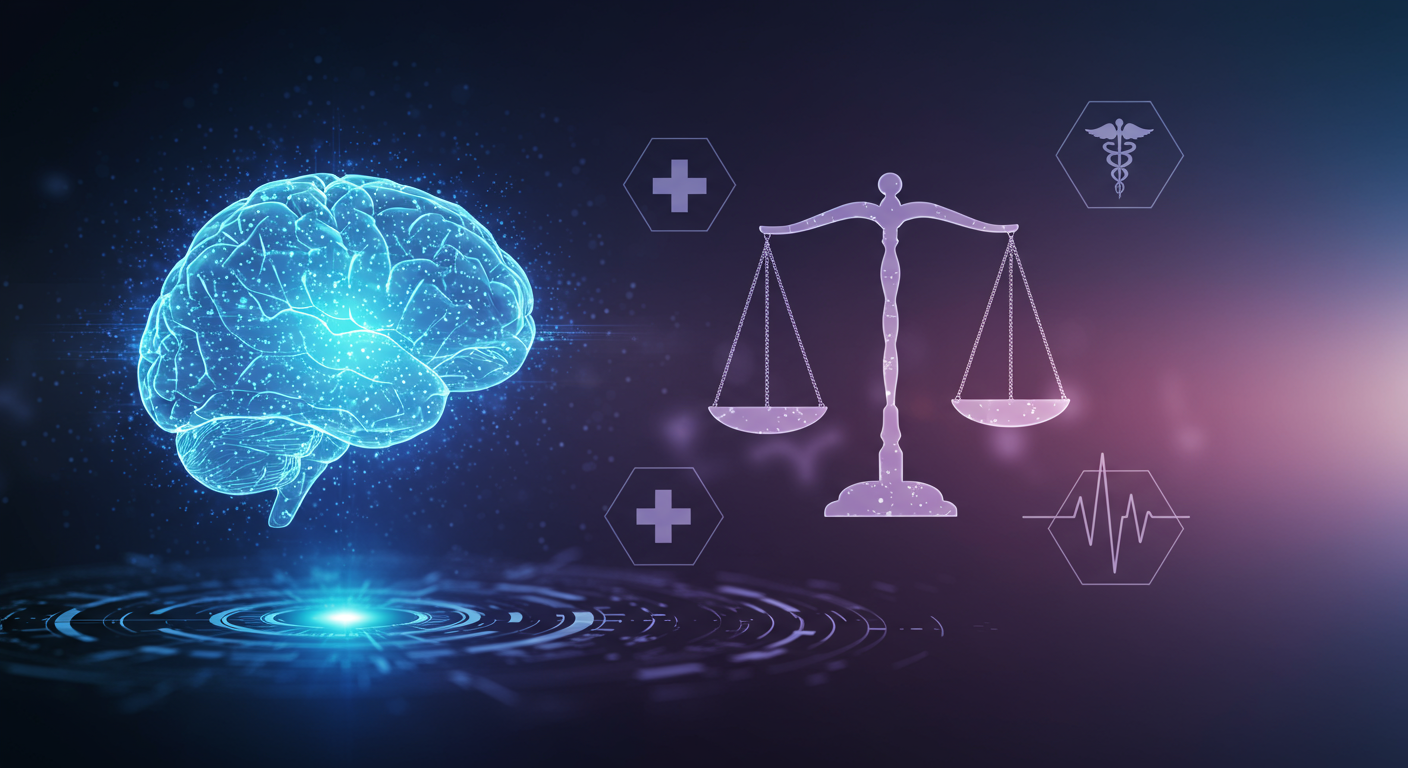AI in Healthcare: Balancing Innovation with Ethical Responsibility

Introduction: The AI Revolution in Medicine
Artificial Intelligence (AI) is rapidly transforming the healthcare landscape, offering unprecedented opportunities to enhance diagnostics, personalize treatments, accelerate drug discovery, and improve overall patient care. From sophisticated algorithms that analyze medical images with remarkable accuracy to AI-powered tools that predict disease outbreaks, the potential for AI to revolutionize medicine is immense. However, this transformative power brings with it a host of critical ethical considerations that must be carefully navigated.
This article delves into the ethical dimensions of AI in healthcare. We will explore the significant benefits, confront the inherent challenges, and discuss pathways to ensure that AI is developed and deployed responsibly, equitably, and in alignment with core human values and patient rights. For further reading on global health and AI, the World Health Organization (WHO) offers valuable insights.
The Promise of AI in Healthcare
AI systems are being developed to tackle some of healthcare's most pressing problems:
- Enhanced Diagnostics: AI algorithms can analyze medical imaging (X-rays, MRIs, CT scans) to detect diseases like cancer or diabetic retinopathy, often with speed and accuracy comparable to or exceeding human experts.
- Personalized Medicine: By analyzing vast datasets of patient information, including genomics and lifestyle data, AI can help tailor treatments and interventions to individual patient needs.
- Drug Discovery and Development: AI can significantly accelerate the lengthy and costly process of discovering new drugs by identifying potential candidates and predicting their efficacy.
- Operational Efficiency: AI can optimize hospital workflows, manage patient records, predict patient admissions, and assist with administrative tasks, freeing up healthcare professionals to focus on patient care.
- Remote Monitoring and Telehealth: AI-powered wearables and remote monitoring systems can track patient health in real-time, enabling proactive interventions and expanding access to care.
Navigating the Ethical Minefield
Despite its potential, the integration of AI into healthcare presents significant ethical challenges:
Key Ethical Concerns:
- Data Privacy and Security: Healthcare AI relies on vast amounts of sensitive patient data. Ensuring robust data protection, anonymization where appropriate, and compliance with regulations like HIPAA and GDPR is paramount. Unauthorized access or data breaches can have severe consequences.
- Algorithmic Bias and Fairness: AI models are trained on data, and if this data reflects existing societal biases (e.g., demographic, socio-economic), the AI can perpetuate or even amplify these biases. This can lead to disparities in diagnosis, treatment recommendations, and health outcomes for certain patient populations.
- Patient Autonomy and Informed Consent: The "black box" nature of some complex AI algorithms can make it difficult for patients (and even clinicians) to understand how decisions are made. This raises questions about informed consent – can a patient truly consent to a treatment recommended by an AI if its reasoning isn't transparent?
- Accountability and Liability: If an AI system makes an incorrect diagnosis or recommends a harmful treatment, who is responsible? The developers, the healthcare institution, the clinician overseeing the AI, or the AI itself? Establishing clear lines of accountability is crucial.
- The Digital Divide and Equitable Access: The benefits of AI in healthcare may not be accessible to all. Disparities in access to technology, digital literacy, and healthcare infrastructure could exacerbate existing health inequities if not addressed proactively.
- Impact on the Clinician-Patient Relationship: Over-reliance on AI could potentially depersonalize care or diminish the crucial human element in the clinician-patient relationship. Maintaining trust and empathy is vital.
For more detailed discussions on AI ethics, resources like Electronic Frontier Foundation (EFF) on AI provide ongoing analysis of technology's impact on civil liberties.
Pathways to Responsible AI in Healthcare
Addressing these ethical challenges requires a multi-faceted approach:
- Robust Regulatory Frameworks: Governments and international bodies need to develop clear guidelines and regulations for the development, validation, and deployment of AI in healthcare.
- Emphasis on Transparency and Explainability (XAI): Efforts should be made to develop AI systems that are more transparent and whose decision-making processes can be understood by clinicians and, to some extent, patients.
- Bias Detection and Mitigation: Rigorous testing of AI models for biases across different demographic groups is essential, along with strategies to mitigate identified biases. This includes diverse and representative training datasets.
- Data Governance and Security: Implementing strong data governance practices, including stringent security measures and ethical data handling protocols.
- Education and Training: Healthcare professionals need to be trained on the capabilities and limitations of AI tools, as well as the ethical considerations involved in their use.
- Multidisciplinary Collaboration: Ethicists, clinicians, AI developers, patients, and policymakers must collaborate to develop ethical guidelines and best practices.
- Continuous Monitoring and Evaluation: AI systems in healthcare should be continuously monitored post-deployment to assess their performance, identify unintended consequences, and ensure they remain fair and effective.
A Shared Responsibility
The journey to ethically integrate AI into healthcare is a shared responsibility. It requires a commitment from all stakeholders to prioritize patient well-being, equity, and trust above all else. While the technological advancements are exciting, they must always be guided by a strong ethical compass.